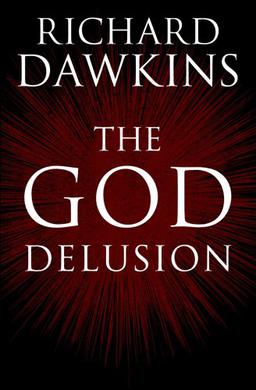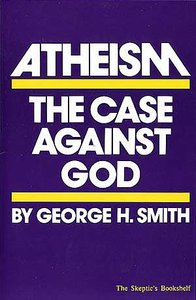Agnosticism is the view or belief that the existence of God, of the divine or the supernatural is unknown or unknowable. Another definition provided is the view that "human reason is incapable of providing sufficient rational grounds to justify either the belief that God exists or the belief that God does not exist."

Negative atheism, also called weak atheism and soft atheism, is any type of atheism where a person does not believe in the existence of any deities but does not necessarily explicitly assert that there are none. Positive atheism, also called strong atheism and hard atheism, is the form of atheism that additionally asserts that no deities exist.
Michael Lou Martin was an American philosopher and former professor at Boston University. Martin specialized in the philosophy of religion, although he also worked on the philosophies of science, law, and social science. He served with the US Marine Corps in Korea.
Theological noncognitivism is the non-theist position that religious language, particularly theological terminology such as 'God', is not intelligible or meaningful, and thus sentences like 'God exists' are cognitively meaningless. This would also imply that sentences like the negation of 'God exists' or 'God does not exist' are likewise meaningless, i.e., neither true nor false. It may be considered synonymous with ignosticism, a term coined in 1964 by Sherwin Wine, a rabbi and a founding figure of Humanistic Judaism.

In the philosophy of religion, Reformed epistemology is a school of philosophical thought concerning the nature of knowledge (epistemology) as it applies to religious beliefs. The central proposition of Reformed epistemology is that beliefs can be justified by more than evidence alone, contrary to the positions of evidentialism, which argues that while non-evidential belief may be beneficial, it violates some epistemic duty. Central to Reformed epistemology is the proposition that belief in God may be "properly basic" and not need to be inferred from other truths to be rationally warranted. William Lane Craig describes Reformed epistemology as "One of the most significant developments in contemporary religious epistemology ... which directly assaults the evidentialist construal of rationality."

Antony Garrard Newton Flew was an English philosopher. Belonging to the analytic and evidentialist schools of thought, Flew worked on the philosophy of religion. During the course of his career he taught philosophy at the universities of Oxford, Aberdeen, Keele, and Reading in the United Kingdom, and at York University in Toronto, Canada.
George Hamilton Smith was an American author, editor, educator, and speaker, known for his writings on atheism and libertarianism.
Atheism is the rejection of an assertion that a deity exists. In a narrower sense, hard atheism is specifically the position that there are no deities, effectively taking the stance of a positive claim in regards to the existence of any goddess or god. The English term 'atheist' was used at least as early as the sixteenth century and atheistic ideas and their influence have a longer history.
The Atheist's wager, coined by the philosopher Michael Martin and published in his 1990 book Atheism: A Philosophical Justification, is an atheistic response to Pascal's wager regarding the existence of God.

Russell's teapot is an analogy, formulated by the philosopher Bertrand Russell (1872–1970), to illustrate that the philosophic burden of proof lies upon a person making empirically unfalsifiable claims, as opposed to shifting the burden of disproof to others.
Criticism of atheism is criticism of the concepts, validity, or impact of atheism, including associated political and social implications. Criticisms include positions based on the history of science, philosophical and logical criticisms, findings in both the natural and social sciences, theistic apologetic arguments, arguments pertaining to ethics and morality, the effects of atheism on the individual, or the assumptions that underpin atheism.

The God Delusion is a 2006 book by British evolutionary biologist and ethologist Richard Dawkins. In The God Delusion, Dawkins contends that a supernatural creator, God, almost certainly does not exist, and that belief in a personal god qualifies as a delusion, which he defines as a persistent false belief held in the face of strong contradictory evidence. He is sympathetic to Robert Pirsig's statement in Lila (1991) that "when one person suffers from a delusion it is called insanity. When many people suffer from a delusion it is called religion." In the book, Dawkins explores the relationship between religion and morality, providing examples that discuss the possibility of morality existing independently of religion and suggesting alternative explanations for the origins of both religion and morality.
Discrimination against atheists, sometimes called atheophobia, atheistophobia, or anti-atheism, both at present and historically, includes persecution of and discrimination against people who are identified as atheists. Discrimination against atheists may be manifested by negative attitudes, prejudice, hostility, hatred, fear, or intolerance towards atheists and atheism or even the complete denial of atheists' existence. It is often expressed in distrust regardless of its manifestation. Perceived atheist prevalence seems to be correlated with reduction in prejudice. There is global prevalence of mistrust in moral perceptions of atheists found in even secular countries and among atheists.
The evolutionary argument against naturalism (EAAN) is a philosophical argument asserting a problem with believing both evolution and philosophical naturalism simultaneously. The argument was first proposed by Alvin Plantinga in 1993 and "raises issues of interest to epistemologists, philosophers of mind, evolutionary biologists, and philosophers of religion". The EAAN argues that the combined belief in both evolutionary theory and naturalism is epistemically self-defeating. The argument for this is that if both evolution and naturalism are true, then the probability of having reliable cognitive faculties is low. This argument comes as an expansion of the argument from reason, although the two are separate philosophical arguments.

Implicit atheism and explicit atheism are types of atheism. In George H. Smith's Atheism: The Case Against God, "implicit atheism" is defined as "the absence of theistic belief without a conscious rejection of it", while "explicit atheism" is "the absence of theistic belief due to a conscious rejection of it". Explicit atheists have considered the idea of deities and have rejected belief that any exist. Implicit atheists, though they do not themselves maintain a belief in a god or gods, have not rejected the notion or have not considered it further.

God Is Not Great is a 2007 book by author and journalist Christopher Hitchens in which he makes a case against organized religion. It was originally published in the United Kingdom by Atlantic Books as God Is Not Great: The Case Against Religion and in the United States by Twelve as God Is Not Great: How Religion Poisons Everything, but was republished by Atlantic Books in 2017 with no subtitle.
Atheism, in the broadest sense, is an absence of belief in the existence of deities. Less broadly, atheism is a rejection of the belief that any deities exist. In an even narrower sense, atheism is specifically the position that there are no deities. Atheism is contrasted with theism, which in its most general form is the belief that at least one deity exists.
Agnostic atheism or atheistic agnosticism is a philosophical position that encompasses both atheism and agnosticism. Agnostic atheists are atheistic because they do not hold a belief in the existence of any deity and are agnostic because they claim that the existence of a divine entity or entities is either unknowable in principle or currently unknown in fact.

Questions of Truth is a book by John Polkinghorne and Nicholas Beale which offers their responses to 51 questions about science and religion. The foreword is contributed by Antony Hewish.
The term New Atheism describes the positions of some atheist academics, writers, scientists, and philosophers of the 20th and 21st centuries. New Atheism advocates the view that superstition, religion, and irrationalism should not simply be tolerated. Instead, they advocate the antitheist view that the various forms of theism should be criticised, countered, examined, and challenged by rational argument, especially when they exert strong influence on the broader society, such as in government, education, and politics. Major figures of New Atheism include Richard Dawkins, Sam Harris, Christopher Hitchens, and Daniel Dennett, collectively referred to as the "Four Horsemen" of the movement, as well as Ayaan Hirsi Ali, until her conversion to Christianity in 2023.







